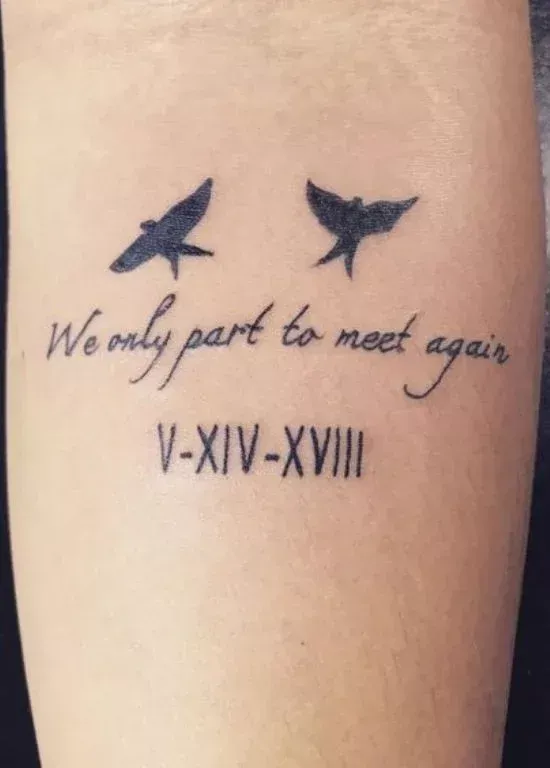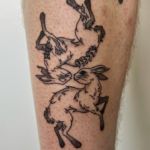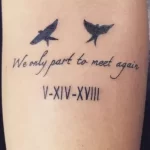Memorial tattoos have become a popular way for people to honor and remember loved ones who have passed away. These tattoos serve as a permanent reminder of the person who has left a lasting impact on their lives.
Memorial tattoos can take many forms, from simple designs with the person’s name and dates of birth and death, to more elaborate and artistic pieces that incorporate symbols or images that hold special meaning to the individual or their loved one. Some people choose to get tattoos that represent the person’s hobbies, interests, or personality traits, while others opt for more traditional imagery such as angels, crosses, or religious symbols.
One of the reasons why memorial tattoos are so popular is that they provide a sense of comfort and closure for those who are grieving. Having a tangible reminder of the person they have lost can help to keep their memory alive and provide a source of strength during difficult times. For many, memorial tattoos serve as a way to express their love and appreciation for the person who has passed away, and to carry their legacy forward.
In addition to serving as a personal tribute, memorial tattoos can also be a way for people to connect with others who have experienced similar losses. They can be a powerful conversation starter, sparking discussions about loved ones who have passed away and helping to create a sense of community and understanding among those who are grieving.
While memorial tattoos can be a meaningful way to honor a loved one, it is important for individuals to carefully consider their decision before getting inked. It is advisable to choose a reputable tattoo artist who has experience creating memorial tattoos, and to take the time to think about the design and placement of the tattoo to ensure it accurately reflects the person being honored.
Ultimately, memorial tattoos are a deeply personal and emotional way to pay tribute to a loved one who has passed away. Whether simple or elaborate, these tattoos serve as a lasting reminder of the impact that the person had on their lives, and provide a sense of comfort and healing for those who are left behind.
 innstyled Tattoo Ideas
innstyled Tattoo Ideas



















